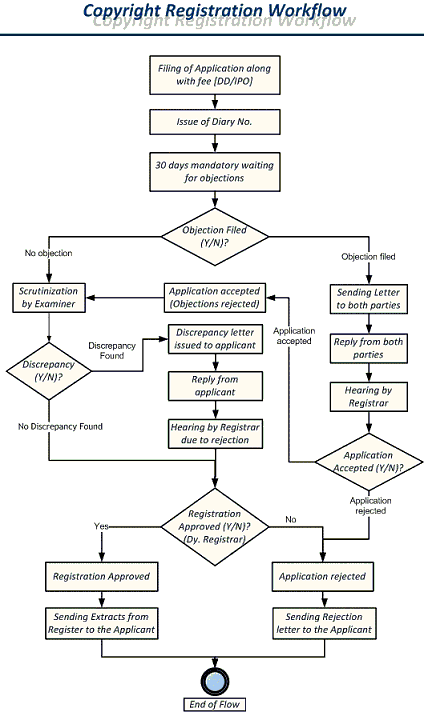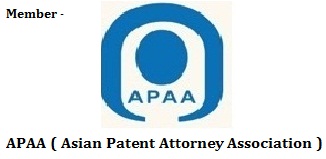Copyright Registration Process
Copyright Registration in India gives the creators of a wide range of material, such as literature, art, music, sound recordings, films and broadcasts, economic rights enabling them to control use of their material in a number of ways, such as by making copies, issuing copies to the public, performing in public, broadcasting and use on-line. It also gives moral rights to be identified as the creator of certain kinds of material and to object to its distortion or its mutilation. (Material protected by copyright is termed a “work”.)
However, copyright does not protect ideas, names or titles. The purpose of copyright law in India is to allow copyright registrants to gain economic rewards for their efforts and so encourage future creativity and the development of new material which benefits us all. Copyright material is usually the result of creative skill and/or significant labour and/or investment and without protection, it would often be very easy for others to exploit material without paying the creator. Most uses of copyright material therefore require permission from the copyright owner. However there are exceptions to copyright, so that some minor uses may not result in copyright infringements.

Copyright protection is automatic as soon as there is a record in any form of the material that has been created. Under the Indian Copyright Act there is a provision to register copyright although this is voluntary.
Owner of Copyright
In the case of a literary, dramatic, musical or artistic work, the general rule is that the author, i.e. the person who created the work, is the first owner of the economic rights under copyright. However, where such a work is made in the course of employment, the employer is the first owner of these rights, unless an agreement to the contrary has been made with the author.
In the case of a sound recording the record producer is the author and first owner of copyright; in the case of a broadcast, the broadcaster; and in case of a published edition, the publisher.
Copyright is, however, a form of property which, like physical property, can be bought or sold, inherited or otherwise transferred, wholly or in part. So, some or all of the economic rights may subsequently belong to someone other than the first owner. In contrast, the moral rights accorded to authors of literary, dramatic, musical and artistic works and film directors remain with the author or director or pass to his or her heirs on death. Copyright in material produced by a Government department belongs to the Government of India.
Copyright owners generally have the right to authorise or prohibit any of the following things in relation to their works:
Copying of the work in any way eg. photocopying / reproducing a printed page by handwriting, typing or scanning into a computer / taping live or recorded music.
Issuing copies of the work to the public.
Public delivery of lectures or speeches etc.
Broadcasting of the work, audio / video or including it in a cable programme.
Making an adaptation of the work such as by translating a literary or dramatic work, transcribing a musical work and converting a computer program into a different computer language or code.
Copyright is infringed when any of the above acts are done without authorisation, whether directly or indirectly and whether the whole or a substantial part of a work, unless what is done falls within the scope of exceptions to copyright permitting certain minor uses of material.
It is important to remember that just buying or owning the original or a copy of a copyright work does not give you permission to use it the way you wish. For example, buying a copy of a book, CD, video, computer program etc does not necessarily give you the right to make copies (even for private use), play or show them in public. Other everyday uses of copyright material, such as photocopying, scanning, downloading from a CD-ROM or on-line database, all involve copying the work. So, permission is generally needed. Also, use going beyond an agreed licence will require further permission.


